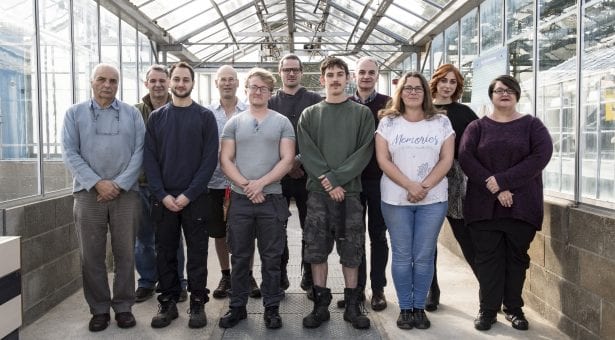Alongside our field experimentation facilities, we also offer a full horticultural service, from potting up and growing plants, plus a range of glasshouses and Controlled Environment Rooms. We asked team member and Instagram plant influencer, Sophie Able to enlighten us on what they can do to help plant scientists with their research. “I am one of those people who loves their job and I am so lucky to share my passion for plants both at work and at home. I think my love of plants developed at a very early age. I spent a lot of time with my Nanny in her garden before she passed away when I was still very young. My Mum is also extremely green fingered, so I have a lot of botanical childhood memories. A few years ago, my passion for indoor gardening grew, I started by collecting succulents, but slowly found a love for all foliage. I’ve since developed a large house plant collection, which has proved popular on Instagram , you should definitely follow me to find out more… I’m really proud to be part of the horticultural team we offer scientists here, because I’m not sure there are too many research institutes that offer the service we do. We invest a lot of time and effort in allowing our scientists to concentrate purely on their science, without having to worry about getting their hands dirty preparing their own pots and trays, mixing compost ratios, or carrying out tasks for the general upkeep of their material, along with pest and disease control and spraying regimes. My role in the team is to process the Crop Request Forms, which as the name suggests is how scientists submit their orders for plants. Scientists can request soil and sundry items, sowing and transplanting requests, or simply general tasks to be carried out. They can choose which soil and pots they require, how many, the location in which their material will be grown and state what amount of work is required from Horticultural Services with a date they require this done by. I then allocate each […]






